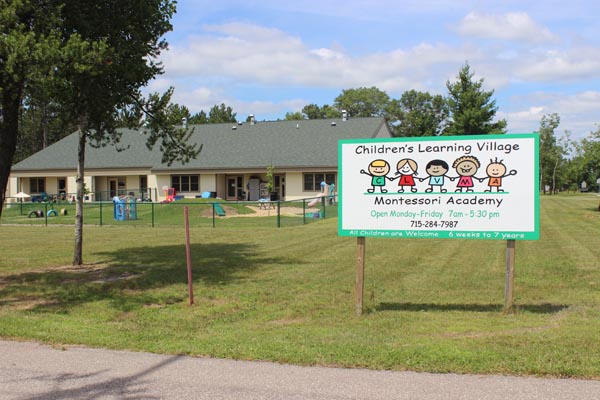Youth at daycare center to learn the basics of hands-on gardening
By Ken Luchterhand

Ah. Feel the power of the vegetable.
Soon, little ones will not only be feeling that power but also knowing where it comes from.
The Children’s Learning Village Montessori Academy in Black River Falls has just been approved for a grant to create a garden for both educational and nutritional purposes.
Children’s Learning Village Director Lee Ann Mortenson was notified on June 27 that the daycare center was awarded an Early Care and Education Garden Micro Grant, provided by the Wisconsin Department of Health Services in partnership with the Wisconsin Department of Children and Families Race to the Top.
“Our overall goal is to work with children in an outdoor environment,” Mortenson said. “It’s another way and opportunity to learn.”
Mortenson said she applied for the $1,000 grant in early June.
The Children’s Learning Village Montessori Academy met all the criteria of the grant, which was to be located in Wisconsin, have regulated child care programs, that the center be a YoungStar participant, and to be prepared to use gardens as a means of engaging children in health and learning goals.
They’ve been working on the playground over the last year, placing the sod and hills, using a grant that was available for the project. In the process, they didn’t sod a section with the intentions of creating a garden within the fenced-in playground area.
They plan to build raised garden beds in that area, plus have container gardens throughout the yard and building.
“I would try to get the children involved as much as possible. They would participate in planting, watering, weeding and harvesting,” she said. “Also, classroom education is part of the gardening program, so part of the grant will include the purchase of books and educational materials.”
They will learn about gardening, especially during the growing season.
“They can see the vegetables growing and then eventually eat them,” she said. “Then they’ll have an understanding where their food comes from and are more eager to eat it.”
It’s hands-on learning, she said. Not only will the children learn about gardening, but also they will take that knowledge home with them and it will encourage their families to participate in gardening.
“We don’t need a fence around the garden area. We teach them what the expectations outside are,” Mortenson said. “We will talk about it before we go outside.”
The garden is for the older children, two to six years old, so that they can understand the gardening process.
“They’ll see the success and get experience they can absorb,” she said.
In the 6-week to 2-year-old area, they will just utilize container gardening and they will not have access to the outside garden.
“We like to challenge them with new experiences,” she said. “For some children, this may be the first time to see a garden.”
Also, the teachers will talk about having a healthy diet, then eat some fruits and vegetables, which ties in with the curriculum.
“This is so us,” Mortenson said. “We met all the criteria. This is a great opportunity. Seeing the plant first as a seed and then growing into a plant. A lot of children don’t know that.”
The garden will created and begin in the coming weeks, she said.
Home